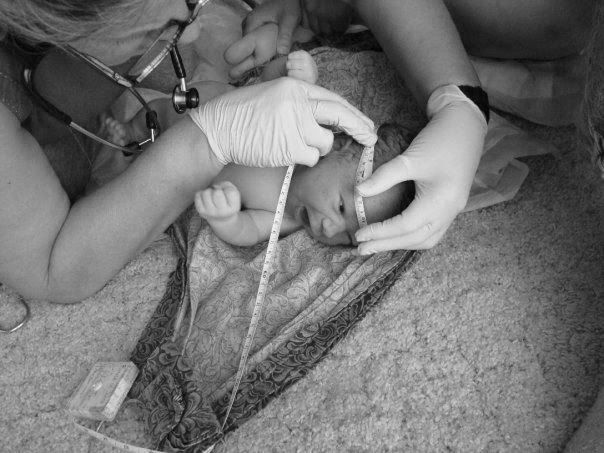I can’t tell you how many times someone's asked me, “well aren’t doula’s and midwives the same thing?” It’s through this response that I’ve come to realize that we as women, and our collective families are really missing out on all the options we have when it comes to birth.
A doula is typically a woman who serves other women before, during and after labor. These women are usually educated in the ways of holistic childbirth, thus helping other women to achieve natural, unmedicated births. Ideally a doula and the parents would begin to form their relationship long before the baby was due to arrive. Part of that relationship should include prenatal education, and an introduction to the early stages of parenting.
The prenatal education that a doula provides might include nutrition, a brief description of anatomy and the birth process, and mental/physical preparation. When preparing you mentally and physically for birth the doula will probably suggest light exercise, and stretching. She will probably also talk to you about your deepest fears, and help you work through those fears before the onset of labor. Many women fear their inability to birth because of what mass media has been portraying over the years. This is why it is of the utmost importance that the doula believe that birth is a natural process that requires little to no intervention to take place. If the doula does not believe this, she can’t hope to stand up for her clients beliefs and wishes for natural child birth.
So, what does a doula actually do for the mom during labor? Well, she can suggest new positions for the mom, maintain eye contact with her during contractions, sway and dance with her, offer food or drink, ensure the mothers birth plan is being followed, and encourage the father to be with the mother and keep her space. Sometimes when women have doulas
(if they are not already choosing to have a home birth) they labor at home for an extended period of time before going to the hospital. If it is your intention to have a hospital birth, your doula should be well trained in recognizing the phases of labor and know when birth is close enough to have the mother transport to the hospital.
Above all the doula should protect the mother, keep her sacred space, and encourage her by telling her that she is a capable powerful woman. Labor is a very intimate passionate time, and the mother and father both need to be comfortable with the doula and trust her.

Some doulas provide after birth services for the family, where they come to your home and help prepare meals, and take care of other children. If it’s important for you to have after birth services you should make it known to the doula during the interview process. I strongly encourage all couples to interview at least a few doulas before they decide on one, because each doula is different and may have a different style. The last thing you want is to be uncomfortable in any way with your doula during the birthing process.
Now we can discuss what a midwife is; a midwife is usually a woman who has an extensive education in woman and childbirth. Depending on what state you live in you may have access to several different types of midwives including DEMs (Direct Entry Midwives), CPMs (Certified Professional Midwives), CNMs (Certified Nurse Midwives), and LMs (Licensed Midwives). Direct entry midwives apprentice under the guidance of a seasoned midwife until they are fully trained. These midwives are considered lay midwives as they have no formal training or certification. Certified Professional Midwives are often also DEMs and have completed a program through NARM (North American Registry of Midwives) in which they become certified. Certified nurse midwives are nurses that have also completed a midwifery program. Licensed midwives are available in a few states, and having a license does little for the midwife or client except allow the midwife to accept insurance. It's important for me to note that there is no real difference between the capabilities of the different types of midwives. The ideal midwife for you has nothing to do with her title, and everything to do with her beliefs aligning with yours.
When choosing a midwife the same rules apply as do for doulas. You must feel comfortable and trust your midwife as she will be helping you to bring your new little bundle of joy into the world. Most non-CNM midwives do home-births, but may also participate in a birthing center. A midwife will provide their client with all of their prenatal care (just like you’d get at the OBGYN, except a little more holistic), and postpartum care up to six weeks after the baby is born. Midwives work closely with the family providing emotional support, nutritional education, birth classes (most of the time), and prenatal education.
Depending on the type of midwife you decide to hire you might get someone who is very hands on during labor, or someone who stands back and lets the mother and father do their own thing. Most midwives are somewhere in the middle of this, and offer suggestions when they see the mother could use a push in the right direction. Typically midwives encourage the husbands to really be there when it comes to supporting the mother. A competent midwife should be trained in neonatal resuscitation, and be able to handle any other prenatal or postpartum complication that might occur.
When you choose a midwife you are choosing a partner, in which you will build a deep emotional relationship and connection. You’ll often hear of people choosing home-birth after hospital birth, but never the other way around.
Links for Doulas
Links for Midwifery




No comments:
Post a Comment